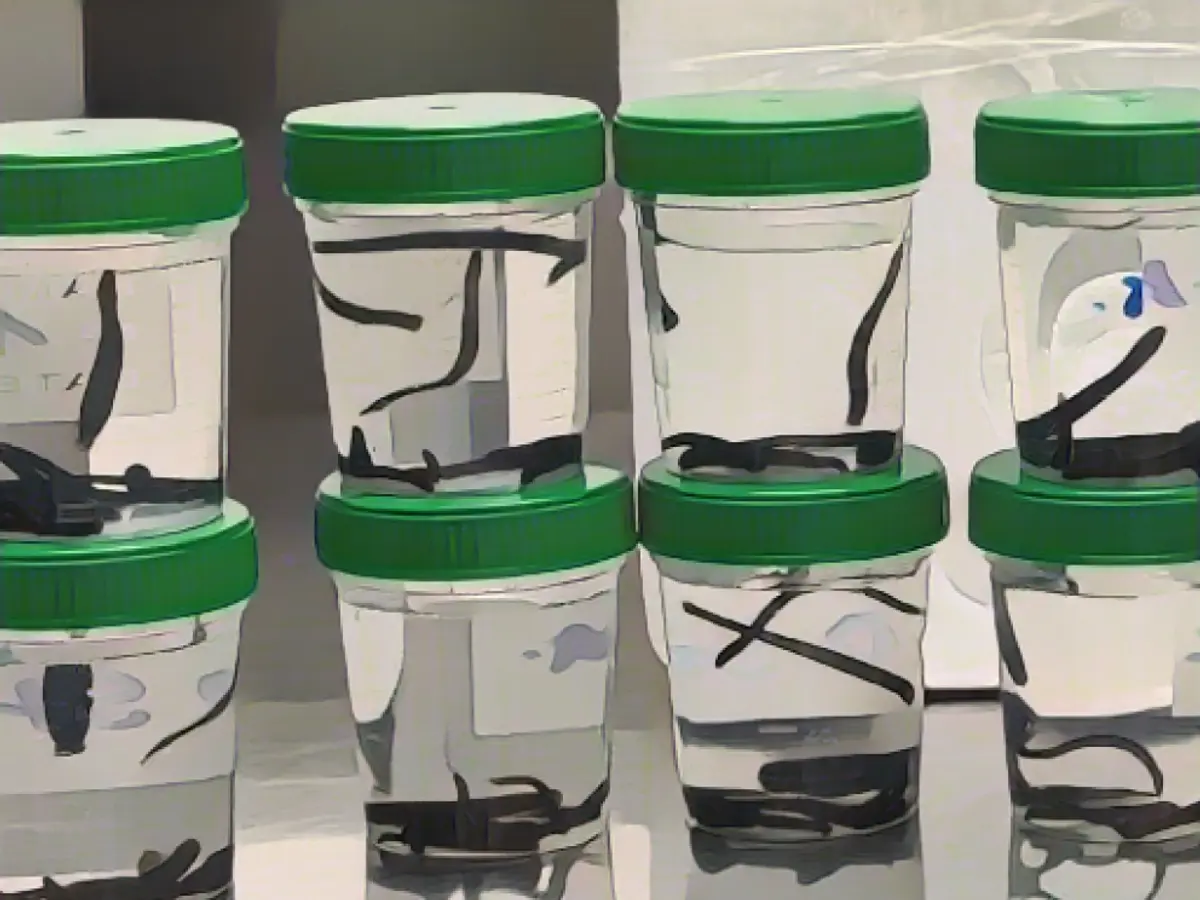Unexpected Find at Stuttgart Airport
In an unexpected turn of events at Stuttgart Airport, customs officials discovered an unusual item in a woman's luggage. The woman, a 62-year-old traveling from Istanbul to Stuttgart, was attempting to breeze through the green exit at around 5 pm. Generally, only travelers who have nothing to declare are allowed through this path.
However, the customs officers suspected something amiss and asked the lady to stand aside. The ensuing luggage check led to an astonishing discovery - 138 live leeches. These slippery mollusks were neatly packed in a polystyrene box and held between damp cloths to prevent dehydration.
Customs Spokesman Thomas Seemann (46) shared the details, explaining that the lady claimed to be suffering from osteoarthritis. As a means to alleviate her pain, she had brought along the leeches. The animals are commonly used in medical practices to improve blood circulation in injured tissue due to their natural anticoagulants.
The customs officials immediately confiscated the leeches and sought the advice of an expert from the Stuttgart Zoo (Wilhelma). The expert suggested that the leeches be placed in plastic cups filled with water initially.
The woman now faces charges for violating species protection regulations. She could be fined several hundred euros as a consequence. The confiscated leeches were subsequently transported to the Wilhelma Zoo for proper care in a suitable habitat.
This incident marks the first time such a large quantity of leeches has been seized at Stuttgart Airport in a single instance. The customs office reported that a total of 129 leeches were discovered and recorded in the 2022 annual report, having been discovered during various inspections.
With their wide-ranging applications in medical treatments, including hospitals, plastic surgery clinics, and burn centers, leeches are more than just a bizarre find at the airport. Their natural anticoagulants are instrumental in improving blood circulation in injured tissue, making them invaluable in various medical procedures.
Sources:
Enrichment Data
Leeches have a rich history in medicine, dating back to the ancient Egyptians and Greeks. The practice of using leeches to manage medical conditions is known as leech therapy or hirudotherapy. Live leeches are attached to the skin to draw blood, which can help reduce blood congestion in veins and prevent tissue necrosis, especially in skin graft patients.
Leeches are also employed in modern medicine to manage certain medical conditions, such as hemochromatosis, a genetic disorder that causes an excessive buildup of iron in the body. Blood withdrawal can help maintain iron levels under control. In polycythemia vera, a condition characterized by the overproduction of platelets and red and white blood cells, blood is drawn to prevent the formation of blood clots.
Regarding the woman who was traveling with 138 live leeches, it is likely that she was violating species protection regulations since leeches are classified as live aquatic bait. Transporting and selling live aquatic bait, including leeches, typically requires a license to assure that they are handled and distributed in an environmentally friendly manner and in compliance with conservation laws. Traveling with such a large quantity of leeches without proper documentation or a license would likely constitute a violation of these regulations.




